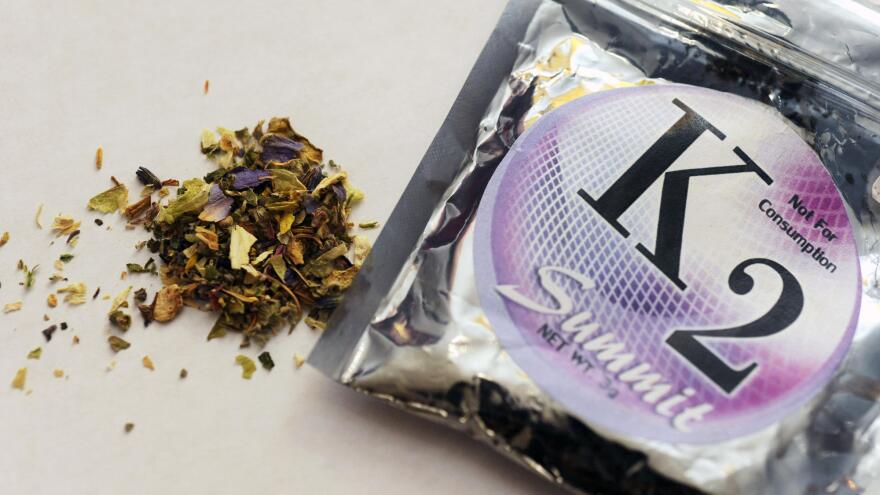Law enforcement note a growing presence of synthetic marijuana in the Tampa Bay area and the nasty side effects — seizures and psychotic episodes — that sometimes accompany the mixes of chemicals which no one fully understands.
The Tampa Tribune reported that while a statewide ban on spice, a common term for the drug, was implemented in 2013, the relatively cheap substance still is easy to come by. Its chemical composition changes faster than laws can be adopted to control use of the drug, making it hard for police to crack down on its use.
St. Petersburg police officers were called 28 times one weekend this month about suspected spice overdoses near a St. Vincent de Paul shelter.
Tampa officials saw a spike in overdoses earlier in the month. Clearwater police similarly conducted a drug detail at a park to get a handle on that city's growing problem after more than a dozen incapacitated people were seen days earlier, high on spice.
Tampa officials saw a spike in overdoses earlier in the month, seemingly contained to its transient population. In a five-day period, Tampa Fire Rescue crews responded to 30 medical calls about spice, a jump from 17 in all of February.
Spice use crosses age and income spectrums. A bad batch of the drug, one leading to seizures, bizarre behavior and overdoses, recently was distributed within the homeless population, said Tampa Police Maj. Keith O'Connor.
Police have not located the source, or distributor, of the batch. "We haven't found a definitive common denominator," O'Connor said.
What makes spice dangerous is how easy it is to get, its inexpensive price and the difficulty of following through with prosecution. While it is called synthetic marijuana, officials say it has nothing to do with the leafy drug that is being legalized for medical use and decriminalized in some U.S. states and cities.
Synthetic marijuana is made by taking dried plant material and soaking it in ever-changing chemical combinations. Packets of the drug used to be available in convenience stores alongside packs of chewing gum and candy bars, and sometimes still are, O'Connor said.
Those packets often are rolled into individual spice cigarettes, which sell on the street for $1 or $2 each.
"They don't know what they're taking," he said of people who buy the drug on the street. "They think they do, but they don't."

